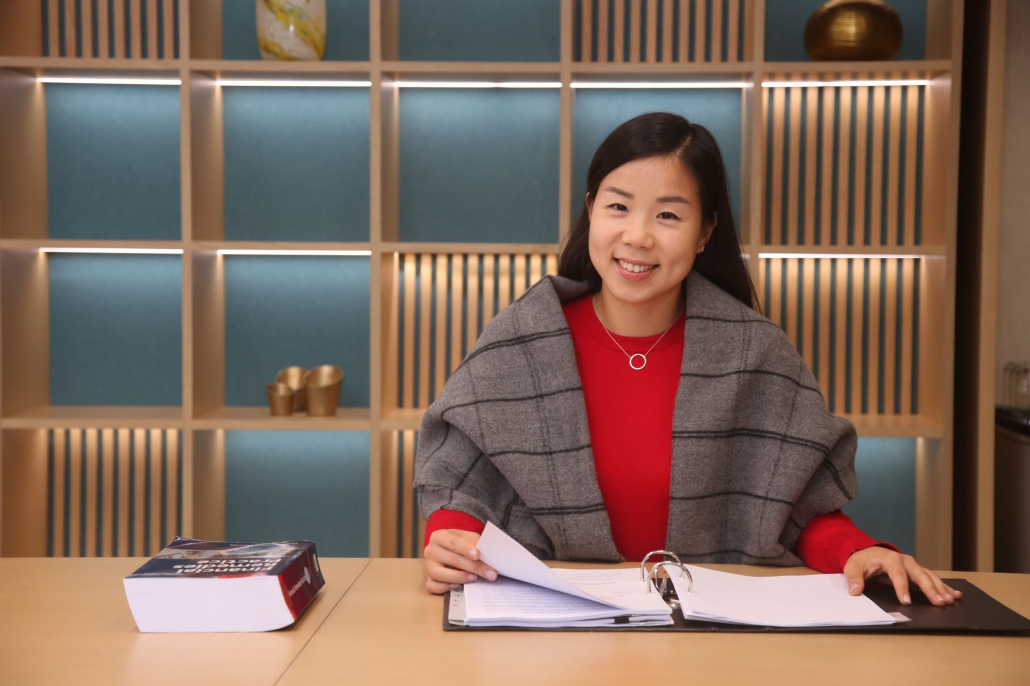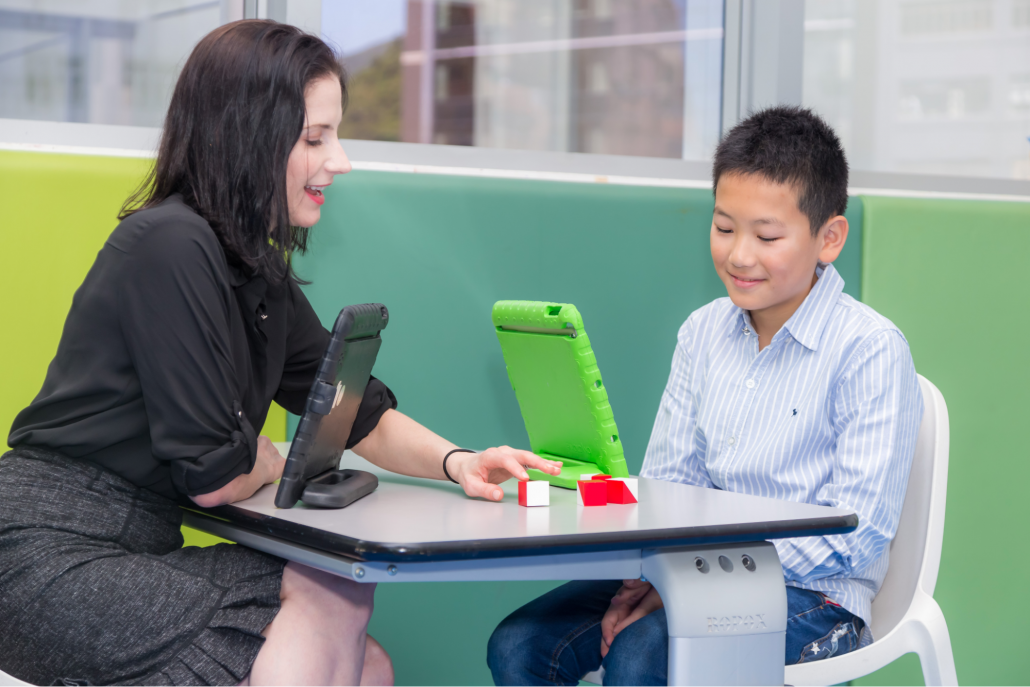
Jocelyn Tsao and Dr Amanda Oswalt Visher on how to manage divorce with children
In collaboration with Jocelyn Tsao and Dr Amanda Oswalt Visher
Despite its increasing prevalence around the world, divorce still remains a taboo and hush-hush subject in Hong Kong – but it shouldn’t be. Instead, we should be learning to understand the laws behind the process, and at the same time, educating ourselves on how to handle such an emotional and often high-conflict situation especially when children are involved.
To clear things up, Family Law and Divorce Lawyer Jocelyn Tsao and Clinical Psychologist Dr Amanda Oswalt Visher dish out advice on how to navigate the particularly challenging and stressful times a divorce process brings about, and how best to keep things amicable for the sake of the children.
Introducing the experts

Tsao is a family lawyer who has been practising for over 15 years and currently is an equity partner of the renowned and leading family team at Withers, an international law firm. She advises on all aspects of matrimonial law including divorce, prenuptial agreements, child custody and financial disputes, and more recently, cases concerning international child abduction and relocation. She is recognised and recommended in legal directories and rankings such as Doyle’s Hong Kong Family & Divorce Lawyers Ranking, Benchmark Litigation and in Chambers and Partners.
Being known as a family lawyer passionate about her work, she says, “I believe that success comes naturally when you do what you love, and I am fortunate enough to work in a practice which I truly enjoy.”

Meanwhile, Dr Amanda Oswalt Visher is the Director of Psychological Services at SPOT Centre providing child, adolescent, individual, couples and family therapy. She also conducts Psychoeducational and Autism Assessments, and her team regularly hosts a number of after school and weekend camps for kids. Having been in the field of child development for over 20 years, Dr Visher approaches every therapy session and assessment with each client’s strengths and needs in mind and strives to make a positive difference in families and to help them overcome roadblocks and challenges that have surfaced.

“Overall, I believe that parents are the experts when it comes to their child and my role is to support them and work as a team with caregivers, teachers and parents in order to understand and bring out the best in each individual,” she says.
Divorce in Hong Kong

Step by step, a divorce process generally involves the filing of a divorce petition, exchanging of financial disclosure and calling for a social investigation report (and child psychologist report) when there are issues regarding the children. Whether it is a dispute relating to finances or the children, there is a special court hearing (called the FDR or CDR hearing) where the judge acts almost like a mediator to help parties reconsider their position and hopefully reach an agreement and avoid a full-blown trial hearing. If the parties fail to settle at
that stage, then the case will move forward to a trial hearing.
For all family lawyers, the responsibility lies in finding the most cost-efficient and least acrimonious way to resolve issues in a divorce in a fair and reasonable manner, with the best interests of the children at the forefront of everyone’s minds.
“A straightforward divorce by consent would probably take around six to eight months, while a contested divorce where parties litigate on either or both finances and children-related matters may take as long as several years,” says Tsao of the timeline of the divorce process.
For families who are thinking of divorce with minimal impact on their children, the lawyer has a few words of advice.
“The first step, if possible, is to sit down together (privately where the children cannot hear) and discuss options and how you each see the future for yourselves and the family. Parents often approach a divorce thinking that the other parent’s objective is to take the children away from them when very often the truth is that they both just want what’s best for the children but have different understandings of what that means,” she explains. “It is important to discuss a solution in which both parents’ roles are recognised and most importantly, where there is minimal disruption or change to the children’s routine and lives.”
“The second step is to seek help and guidance from experts”. Tsao stresses that seeing a therapist who specialises in family divorces is ideal to help parents navigate this stressful time – both in their relationship with one another and with the children. Then, when parents are ready, they should discuss when and where to break the news to the children, which is best done with both parents and with a uniform script and message if possible.
The effects of divorce on children

There’s a silver lining, says Dr. Visher. Luckily, for many children of divorce, the effects are mild and short-lived. After all, happy parents make good parents, so if separating is what is best for mum and dad, it is what is best for the kids too.
However, the first year or two can be challenging for children, who are subject to feelings of anxiety, confusion, anger and disbelief. After the first two years, it has been found that these feelings subside in most children. Most children experience emotional pain when their parents get divorced. Some suffer from prolonged symptoms, including internalised and externalised issues. This is especially evident if parents have a tumultuous separation and put the child in the middle.
“In such cases, we see several ways in which children can suffer,” lists Dr Visher. “Externalising behaviours often arise in children of divorce, including antisocial behaviour, rebellion towards authority figures (teachers, parents, police) and conduct disorders. This is especially true for adolescents.”
Therefore, it is crucial for parents and teachers alike to understand that these externalising behaviours stem from stress, and not malice. Some children internalise their feelings into distress, depression, guilt, anxiety, low self-esteem, loyalty conflicts and confusion. What this means is that when a child is put in the middle, they feel a loyalty to the parent they see more often. If that parent is saying negative things about the other or if the child is being put in the middle (“tell your dad…”, “I can’t believe your mum did…”), then the child will side with the parent saying negative things.
But, this is not set in stone. Usually, as the child grows, they are able to see the toxicity of this and then this bonding is likely to be reversed and is harder to resolve long-term.
Helping children through a divorce
Jocelyn Tsao and Dr Visher both agree that it is key for both parents to be as positive as possible as children pick up their parents’ emotions, and to have a unified plan so that the children know their parents are not on opposing fronts with them being torn in the middle. Let the children know they can come to either of the parents with any questions or feelings whenever they like.
“Avoid involving the children in the divorce and putting them in a position of loyalty conflict. This means, not telling the children anything about the court process and what issues of dispute you are fighting on with the other parent, even when things get acrimonious in the court proceedings. Also, don’t make derogatory comments about the other parent in front of the children, and avoid guilt-tripping the children or showing signs of jealousy when they want to spend time with the other parent,” explains Tsao.
Lastly, she stresses that parents should never try to manipulate the children or use them as a weapon against the other parent, no matter how resentful or bitter they feel about the divorce.
“I notice that children nowadays are resilient and most of them are able to accept and adjust to their parents’ separation, but only if their parents make it as peaceful a separation as possible and cooperate together.”
Concerned parents can contact and seek the services of Jocelyn Tsao here and Dr Amanda Oswalt Visher here.
Read more: Hong Kong Dating: Arguing with your partner? Try this



